When comparing heating systems, the best thing to do is start with knowing what you have in at the moment. Many people don’t know whether they have a gas boiler or some form of electric heating. Gravity hot water systems, fully pumped systems, and combination systems, there are many types of systems and boilers for them.
The 3 main types of central heating systems
Combination boiler systems, heat-only (also called regular), and system boilers are the 3 main types of gas boilers used in homes. Choosing the right one will depend on things like the size of your property, how many people in your household and how much hot water demand there will be.
Installers will recommend the boiler that most suits your needs. But it is good to familiarise yourself with the different types of central heating systems so you understand what the installer recommends and why.
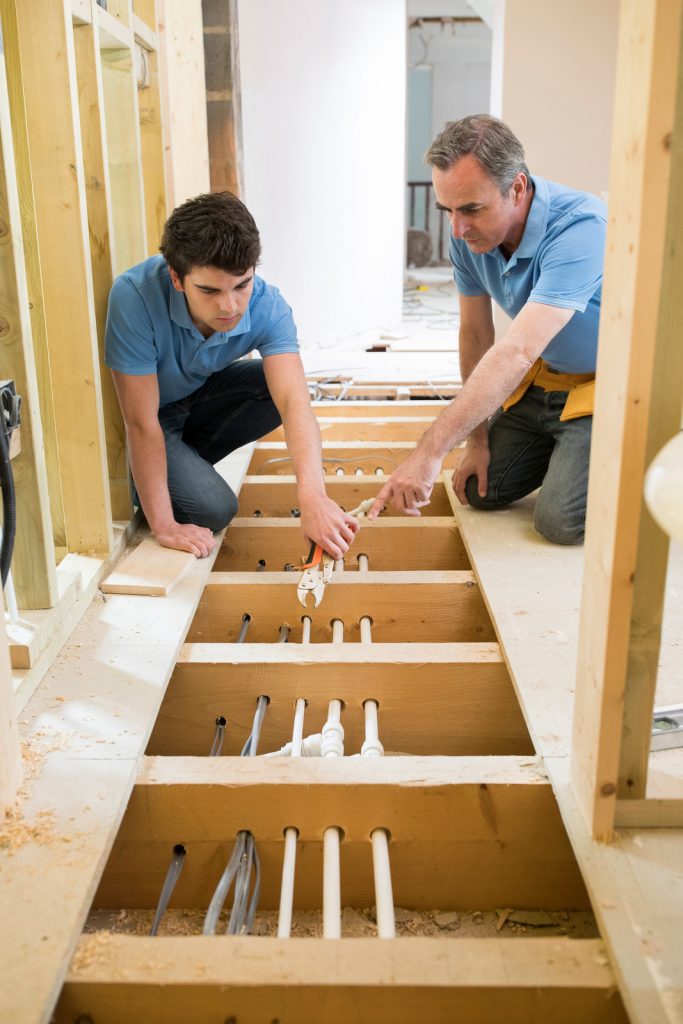
When looking for a new boiler, you can’t go wrong with a gas boiler because of its availability, price and repair costs. The most popular heating systems in the UK are:
Gas combi boiler
Most houses have these installed now as everything from the expansion vessel and pump and diverter valve is built into a box. It can heat water for the taps and the radiators in one unit. The mains cold water goes into the combi, hot water comes straight out of the taps instantaneously. There are no roof tanks or cylinders to install or maintain.
Pros: Some of the benefits of combi boilers are that they are cheaper to buy and install and are highly efficient. You only heat the amount of water that you need. You also get good pressure as the cold water is directly from the mains. Because they are compact, they are ideal for smaller houses.
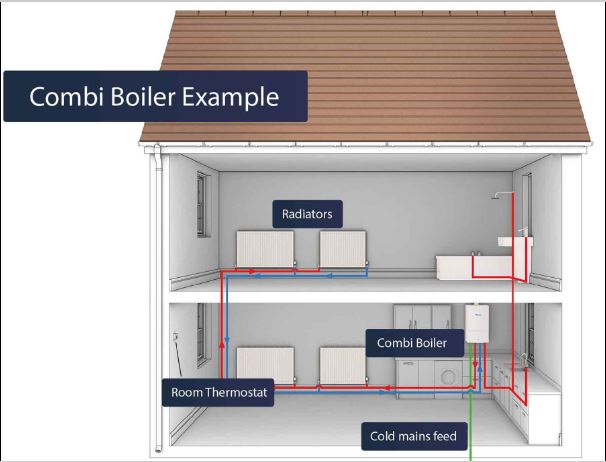
Cons: A drawback of combi boilers is that to work efficiently, they need good water pressure coming into the house. Also, as they have so many complex parts, they are more liable to breakdown and will need annual maintenance. Finally, they are not good at supplying more than one hot tap or appliance at the same time.
Heat only/regular boiler system
Once a popular heating method, heat-only boilers are also known as regular boilers, conventional, or open vent systems. It requires a storage cylinder for the hot water and a tank for cold water, so you will need plenty of space. They are good for areas with low water pressure and larger properties that have a big demand for hot water.
Here, a boiler tank sits in a cupboard. At the top of the house is the cold water feed tank. Cold water is sent down by gravity pressure to the cylinder and the water is heated by the boiler and sent to the radiators. It keeps the cold system separated for heating water for the taps, so it doesn’t mix with the radiator water.
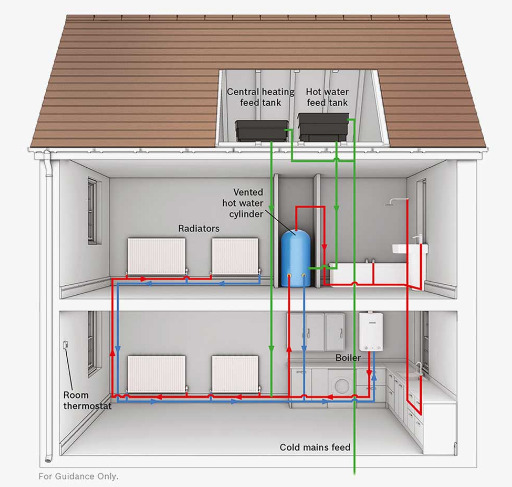
System boiler
This type heats the central heating system and produces hot water to be stored in a cylinder. It works like a conventional boiler in that it needs to store the hot water it produces, but unlike conventional boilers, it takes the water supply directly from the mains.
This makes it much more compact than regular boilers but still able to deliver a high volume of domestic hot water.
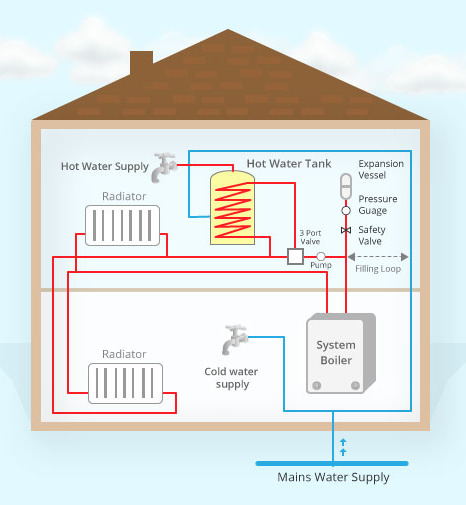
- Visit our recommended page to find three top boiler installation companies that will be able to install any type of boiler system you choose.
Other types of heating systems
Gravity hot water and pumped heating
Here you would find a couple of pipes going into the loft. And they would just work on gravity so the house that gets hot water rises and goes up to the cylinder and then comes back down when it’s cool. An external pump would sit somewhere on the system to push water round to the radiators.
The problem with gravity systems is that it takes quite a long time for water to heat up due to the pressure limitation. To increase the pressure, you need to install more systems.
The temperature is not controlled very well either. Also once the water is heated and stored, if it doesn’t get used up, the heat is slowly lost and will need to be reheated by the boiler, wasting energy.
Unvented system
You have a steel tank sitting in the cupboard with lots of pipes. There is no roof tank or feed and expansion (F & E) tank. You often have a pressure vessel going to the inlet and another pressure vessel on the flow and return pipes so the mains is being fed.
As the pressure comes directly from the mains, it enables water to be heated quickly and there is no need for cold water storage. They are an efficient way of storing and distributing hot water throughout the house.
However, they are expensive to install and maintain. They are also not always compatible with modern power showers.
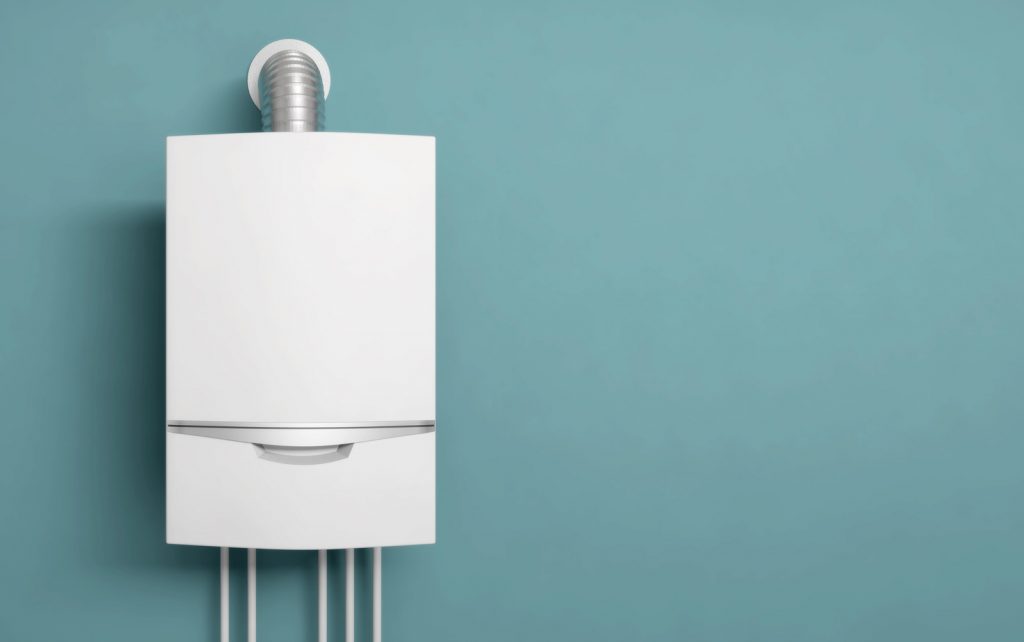
Electric boilers
An electric boiler heating system is clean and almost 100% energy efficient, easy to install and economical to run. They use simple technology and have fewer moving parts than gas or oil fired boilers. Electric boilers are powered from your main supply to heat a series of elements inside, which heats the water like an electric kettle.
Once the water is heated, it is pumped around your home where it’s needed, like the radiators and the hot water cylinder. They come in a range of sizes to suit your requirements and they don’t require a flue or a fuel pipe. They could become a real alternative if natural gas boilers continue to be phased out.
Can you convert gas central heating to electric?
There are a number of reasons why you might want to consider converting your gas central heating to electric. Perhaps you’re concerned about the environmental impact of using gas, or you’re worried about the safety of having a gas supply in your home. Maybe you’re simply looking to save money on your energy bills.
Whatever your reasons, it’s important to know that converting from gas to electric is not a simple process. It will require some significant changes to your home’s existing infrastructure, and it’s important to understand the potential costs and benefits before making a decision.
The first thing to consider is the cost of conversion. Gas central heating systems are typically less expensive to install than electric ones, so you’ll need to factor in the upfront cost of installing new wiring and equipment. You may also need to make changes to your home’s insulation and ventilation.
The second thing to consider is the ongoing cost of running an electric central heating system. Electricity is typically more expensive than gas, so you can expect to see an increase in your energy bills. However, the cost of electricity has been falling in recent years, and it’s possible that this trend will continue.
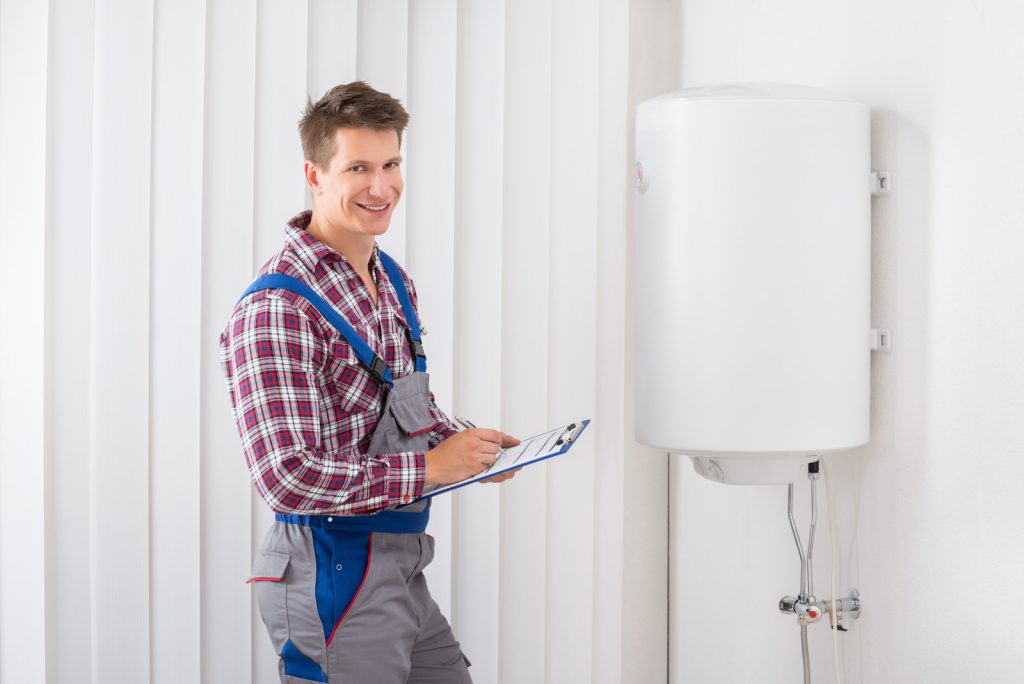
Oil boilers
Oil boilers work in the same way as a gas boiler heats the water but the fuel is oil. They usually have two pumps, a plate heat exchanger and a thermal store (which is why they are so big) which holds the water and feeds the plate heat exchanger upon demand.
They come in heat only and combination boilers for both heating and hot water. Unlike gas, the oil needs to be delivered to you and stored in a tank somewhere at the property, and this will need to be replenished when it runs out.
Solid fuel
Solid fuel heating systems burn coal or wood for energy to heat up the water in the boiler to be used for central heating or hot water. The heated water circulates through the pipework to the radiators from the storage cylinder.
These boilers are much the same as gas or oil systems but don’t have a mains supply like gas. They are a good option in rural areas not connected to the gas network but close to woodland.
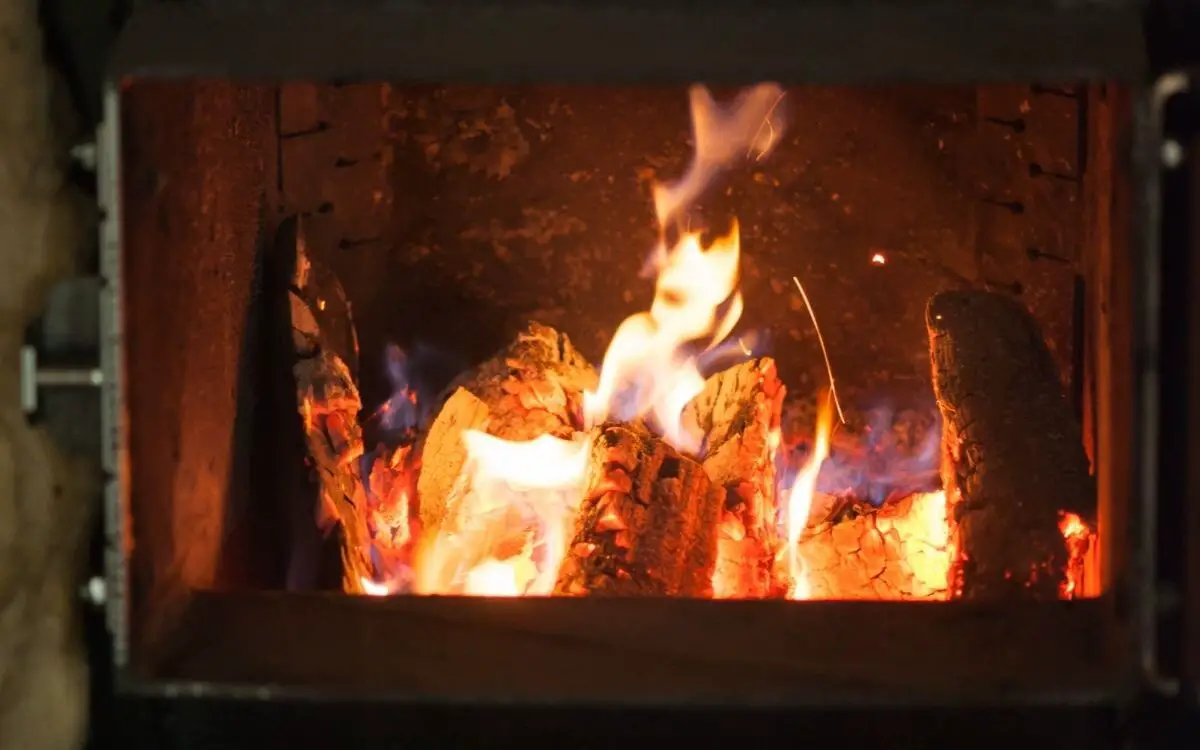
Which heating system should I choose?
When you’re choosing between heating systems it’s critical not to leave it to the last minute. Or leave it to the plumber or the heating engineer to decide for you. The system you need in a new house is very small and it’s a design feature that has to be incorporated from the outset when you’re selecting a heating system.
If you’re thinking about anything other than a gas boiler then you need to calculate accurately how much heat you need and what the split is between space heating and domestic hot water.
Look at your lifestyle – if you live in the house virtually 24/7 then probably underfloor heating is best. This works best on a low ambient temperature running on a constant basis may be best for you.
Keep it simple
Keep it simple when you’re trying to choose a heating system. One of the key points is that if you’ve got mains gas available you really opt for that most of the time.
It makes sense to use mains gas because it’s cheap and plentiful. Other options like wood, coal and oil only really begin to make sense when you’re off the mains gas grid. Are you happy handling logs or having a large tank in the garden? Make that decision early on.
If you’re going to replace an old inefficient boiler with a wood pellet or log burning boiler you need to think about where you’re going to store the fuel. You need a well ventilated place and it needs to be large enough. You also need to think about how easy the access is for deliveries.
- Visit our recommended page to find three top boiler installation companies that will be able to install any type of boiler system for your needs.
*The information in this article should be used for general guidance only and not as financial or health advice. Full details are on the link in the footer to our disclaimer page. Always discuss your requirements with a competent and suitably qualified professional before undertaking any work.
